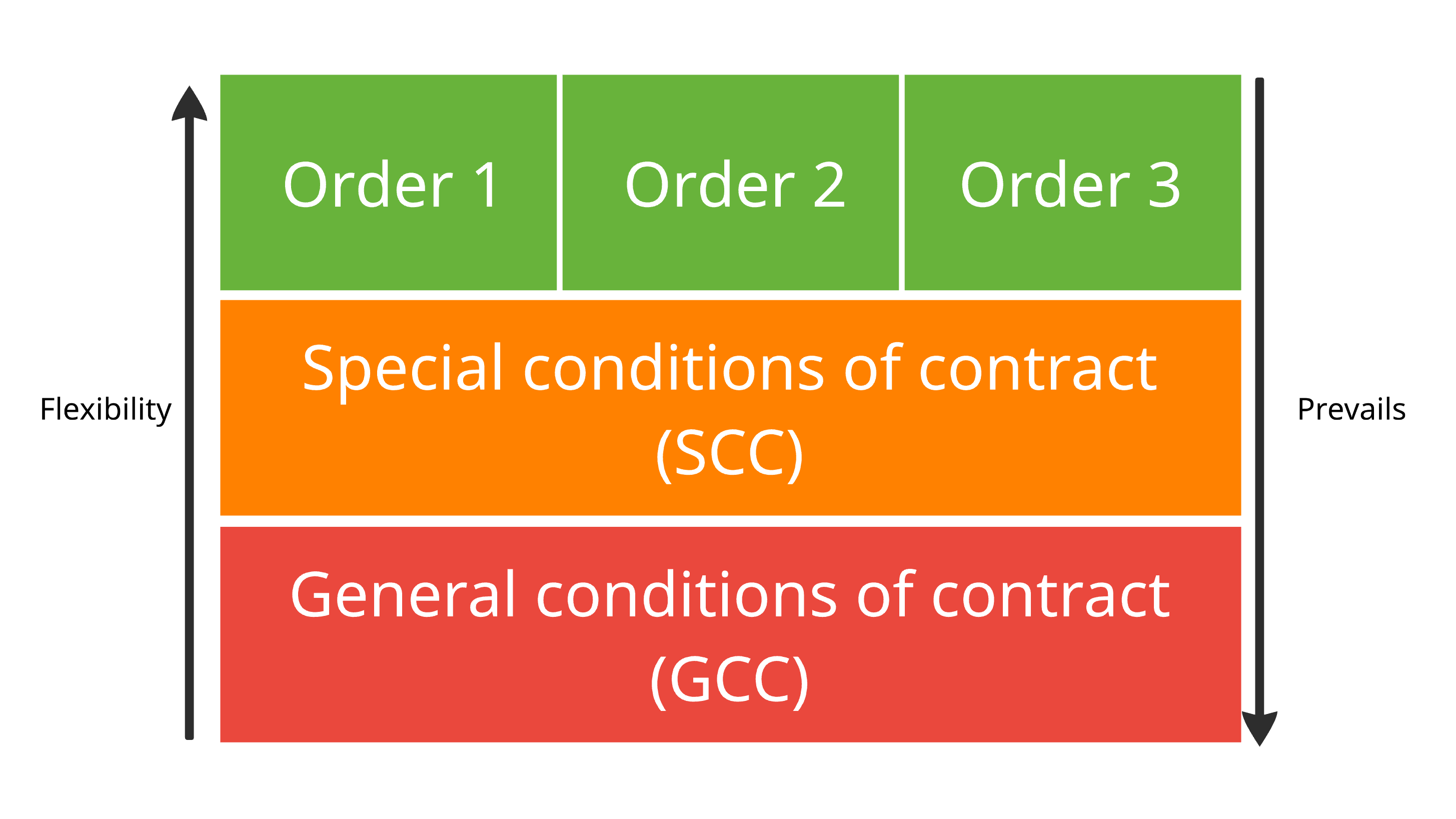The General Conditions of Contract (GCC) form part of all public bid documents, and no one can amend them. They allow for Special Conditions of Contract (SCC). If you want to do business with the public sector, you often have to agree to it. You’ll find that private sector customers use different names for theirs, but the effect is the same. All these conditions of contract favour the customer and place many obligations on you, as a vendor of goods or services.
What are the General Conditions of Contract and Special Conditions of Contract? How do they relate to one another? Must you agree to them to win work? What is the latest version of them? You’ll need all the help you can get to work out which ones to accept or reject, and whether you have any choice at all. Find the latest versions.
If your organisation is looking to acquire IT goods or services (in other words, you’re the customer), read our article on acquiring or procuring ICT goods or services.
General Conditions Contract (GCC)
The General Conditions of Contract apply to each Request for Proposal (RFP), Request for Bid (RFB) or other requests for proposals or quotes (RFPs or RFQs) that the government (public bodies) issues in South Africa. The most recent version of these conditions appears to be the July 2010 version that the National Treasury released. They contain the general legal terms that will apply to the contract that comes into place when the government awards you the opportunity.
To agree or not to agree, that’s the question for you.
These are different types of general conditions of contract.
- There is a National Treasury version from July 2010, but there might be even more recent versions. Always check which specific version the RFP refers to.
- Treasury has a version that was revised in 2008 on their website, but note that they are outdated.
- Some public bodies have created their own version. For example, the United Nations and the Overstrand Municipality.
- General conditions of contract for construction works, which apply specifically to construction.
Special Conditions of Contract (SCC)
These conditions are different in a very important way. Unlike the General Conditions of Contract, they don’t apply to each and every government request for proposals or quotes (RFPs or RFQs). They are the conditions that are unique to a particular request for proposals or quotes (RFPs or RFQs). There are important similarities that you have to be aware of:
- Both sets of conditions are legal in nature, meaning that they deal with issues such as warranties, intellectual property, breach and termination.
- The customer requires you to accept both, and will disqualify you if you don’t.
- They are both very one-sided in the customer’s favour and place many obligations on you.
According to the GCCs, the “Special Conditions of Contract (SCC) relevant to a specific bid, should be compiled separately for every bid (if (applicable) and will supplement the General Conditions of Contract. Whenever there is a conflict, the provisions in the SCC shall prevail“.
Orders
The GCC says that an order “means an official written order issued for the supply of goods or works or the rendering of a service”. Typically, the order contains the specific commercial details.
Can you reject a customer’s conditions of contract?
Often, you can’t escape a customer’s terms or conditions of contract. In fact, customers even go as far as stating that you shouldn’t respond to their requests for proposals or quotes (RFPs or RFQs) if you don’t accept their contract. Your best bet is to navigate their contract in a careful and clever way to manage the legal risks they pose. We’ve worked out how you can do this while not risking being disqualified from responding to the requests for proposals or quotes (RFPs or RFQs).
Actions you can take
- Protect your legal rights while pursuing both public and private sector opportunities by asking us to review the conditions of contract included in an RFP or RFQ.
- Successfully team up with other people to pursue opportunities by asking to draft a Teaming Agreement for you.
- Enhance your drafting and response to RFPs or RFQs by seeking our assistance.
- Manage the legal relationship with your customers by asking us to draft various templates for you.





